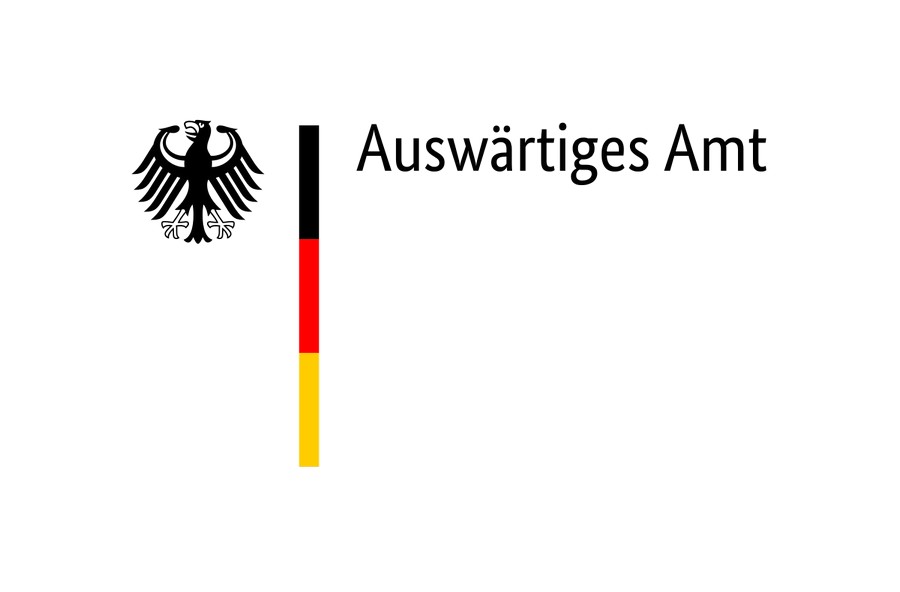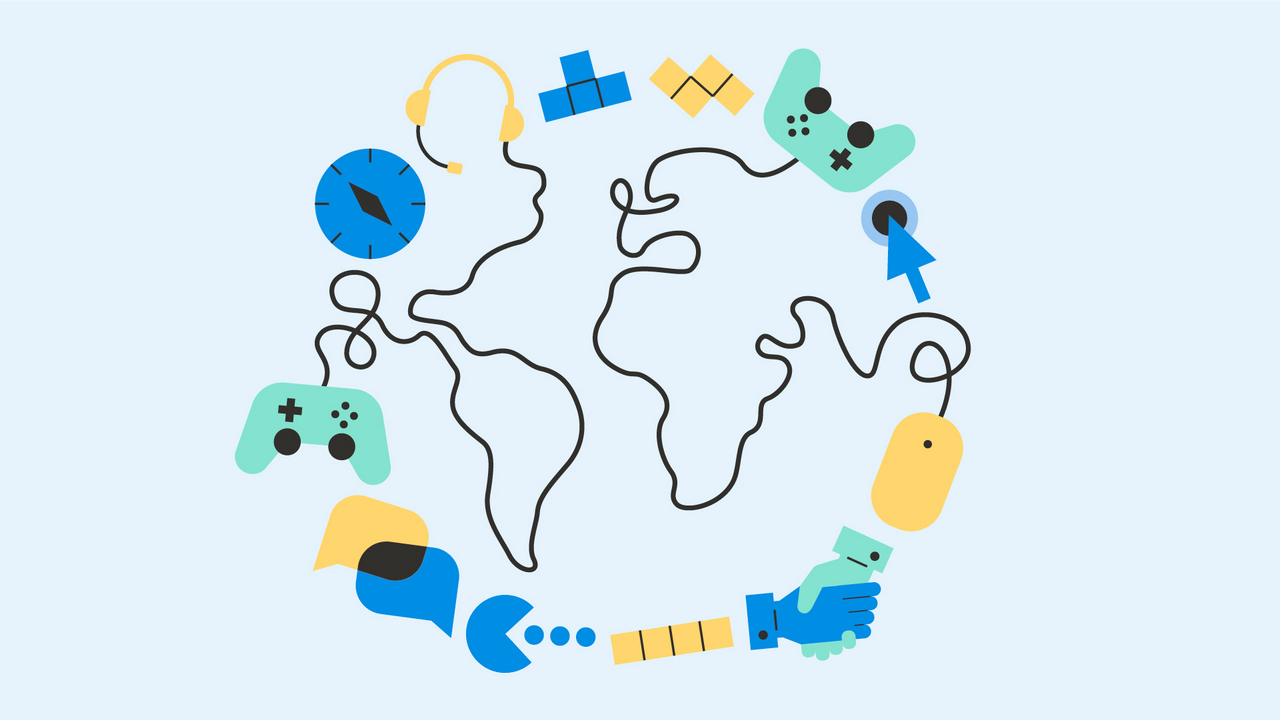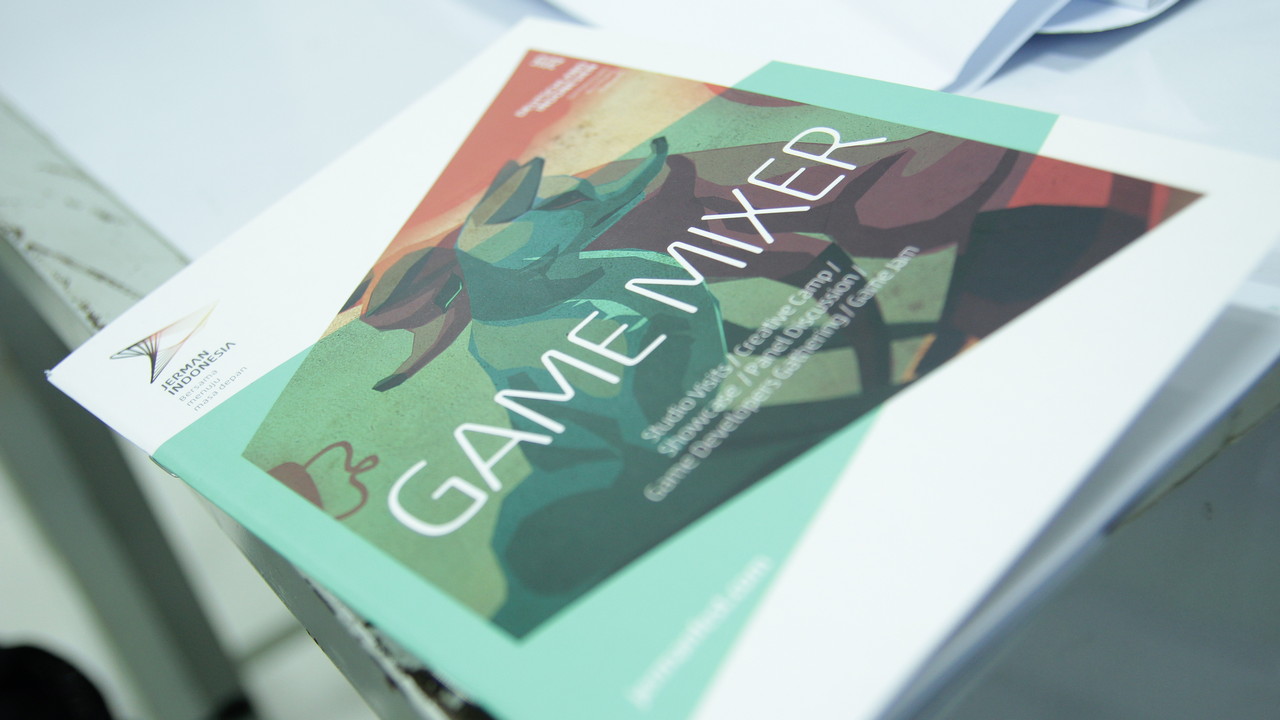In light of the current political world events, foreign policy issues and developments are of the highest relevance. Nevertheless, public debates often give the impression that the general public knows little about the actual foundations of German foreign policy.
At the same time, many games challenge their players to deal with the meaning of self and foreign interests, different value systems and partnerships within their virtual game worlds: Players solve conflicts, enter alliances and act strategically and politically – always within the respective game logics, of course. Can the involving mechanics of digital games, then, also serve to provide a deeper understanding of the workings and mechanisms of foreign policy practice and issues beyond fictional game worlds? At the same time, how might one reach a (critical) sensitization towards political narratives and images within games?
It were precisely these questions which project ‘Auswärtsspiel’ funded by the German Federal Foreign Office, was dedicated to. It aimed to explore the role of digital games as media for conveying narratives and topics of foreign policy. Furthermore, ‘Auswärtsspiel’ seeks to develop an initial approach to the use of games in public diplomacy. To this purpose, an interdisciplinary panel of experts from academia, the gaming industry as well as civil and foreign policy institutions developed a catalogue of 10 guiding questions. The latter seeks to enable all those interested in gaming to become more reflectively aware of games content related to foreign policy and to engage with it in a critical and learning manner.
Furthermore, the conference “Gaming and Foreign Policy” took place to deepen the discourse along the touching points of games and topics as well as practices of foreign policy in Berlin on June 13th 2023. The conference was held in German. You can find a short summary of the event in English here.
To initiate a practical application of the experts’ results, ‘Auswärtsspiel’ also included the Game & Mod Jam “Auswärtig gespielt” (“Gamed Abroad”). The event took place at the DE:HIVE Institut of the University of Applied Sciences Berlin (HTW) from November 9th to 11th 2023.
At the end of the project, the Handbook “Auswärtsspiel – Understanding and Experiencing Foreign Policy with Games!” presents the ten guiding questions which were developed during the project. In the handbook, the guiding questions are contextualized by the panel’s experts from their respective perspectives. The handbook also contains the results of the Game & Mod Jam “Auswärtig gespielt” as well as seven game profiles that illustrate the potential of the guiding questions and the interface between games and foreign policy. Suitable as an inspirational guide, it is now available to all interested parties from the fields of game development and political education as well as foreign policy and academia for further orientiation.
Expert Panel
Michaela Bartelt (Senior Director WW Localization Electronic Arts)
Prof. Thomas Bremer (Professor at the Hochschule für Technik und Wirtschaft Berlin; Co-Founder DE-HIVE Institute)
Daniel Budiman (Co-Founder & Host Rocket Beans TV)
Riad Djemili (CEO, Developer & Founder Maschinen Mensch Studio)
Prof. Lena Falkenhagen (Professor at the University of Applied Sciences Europe, Federal Chairwoman of the Verband deutscher Schriftstellerinnen und Schriftsteller)
Prof. Clemens Hochreiter (Professor at Fresenius Hochschule München; Co-Founder Reality Twist)
Stefanie Kastner (Head of the Libraries Department, Goethe-Institut)
Karsten Lehmann (Director Public Affairs Ubisoft Germany)
Hendrik Lesser (CEO & Founder Remote Control Productions)
Nora Müller (Head of International Politics, Körber Foundation)
Ata Sergey Nowak (Managing Director & Co-Founder Torpor Games)
Prof. Mareike Ottrand (Professor at the Hochschule für Angewandte Wissenschaft Hamburg; Founder Studio Fizbin)
Dr. Eugen Pfister (Hochschule der Künste Bern, Co-Founder Arbeitskreis Geschichtswissenschaft und Digitale Spiele)
Mick Prinz (Project Manager Good Gaming – Well Played Democracy, Amadeu Antonio Foundation)
Marcus Richter (Freelance Journalist & Moderator)
Prof. Dr. Thomas Risse (Professor at the Otto Suhr Institute, Freie Universität Berlin)
Zora Roso / Maximilian Bock (Level Infinite / Tencent)
Dr. Joachim Rother (Project Manager German-Israeli Young Leaders Exchange, Bertelsmann Foundation)
Dr. Matthias Schulze (Deputy Head of Research Group Security Policy, Stiftung Wissenschaft und Politik)
Manouchehr Shamsrizi (Co-Founder game.lab, Arbeitskreis Geschichtswissenschaft und Digitale Spiele; Founder RetroBrain R&D)
Lisa Marie Ullrich (Program Director & Member of the Board of Directors, Münchner Sicherheitskonferenz)
Jan Wagner (Head of Digital, Ulisses Spiele)
Sarah Widmaier (Scientific Coordinator Research Program Culture and Foreign Policy, Institut für Auslandsbeziehungen)
Gabriele Woidelko (Head of History and Politics, Körber Stiftung)
Franziska Zeiner (Co-CEO & Co-Founder, Fein Games)
Felix Zimmermann (Consultant for Games Culture, Political Education and Extremism, Bundeszentrale für politische Bildung)
Catalogue of guiding questions
This catalogue of guiding questions is dedicated to the interface between digital games and foreign policy. It invites all interested parties from development, education, and research as well as (gaming) practice to use it as an impulse for reflection and exchange about the topic of digital games and foreign policy. The guiding questions are structured according to the focal points “Underlying Understanding of Foreign Policy”, “Narratives & Representation”, “Rule Systems & Values” as well as “Mediative Function”. Furthermore, each guiding question has been complemented with exemplary discussion questions.
Supported by





















